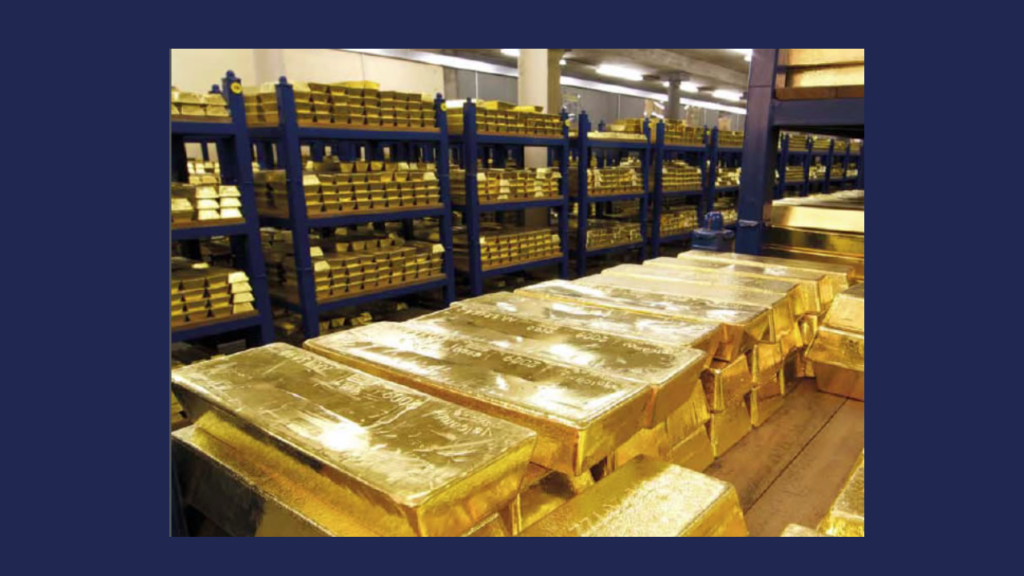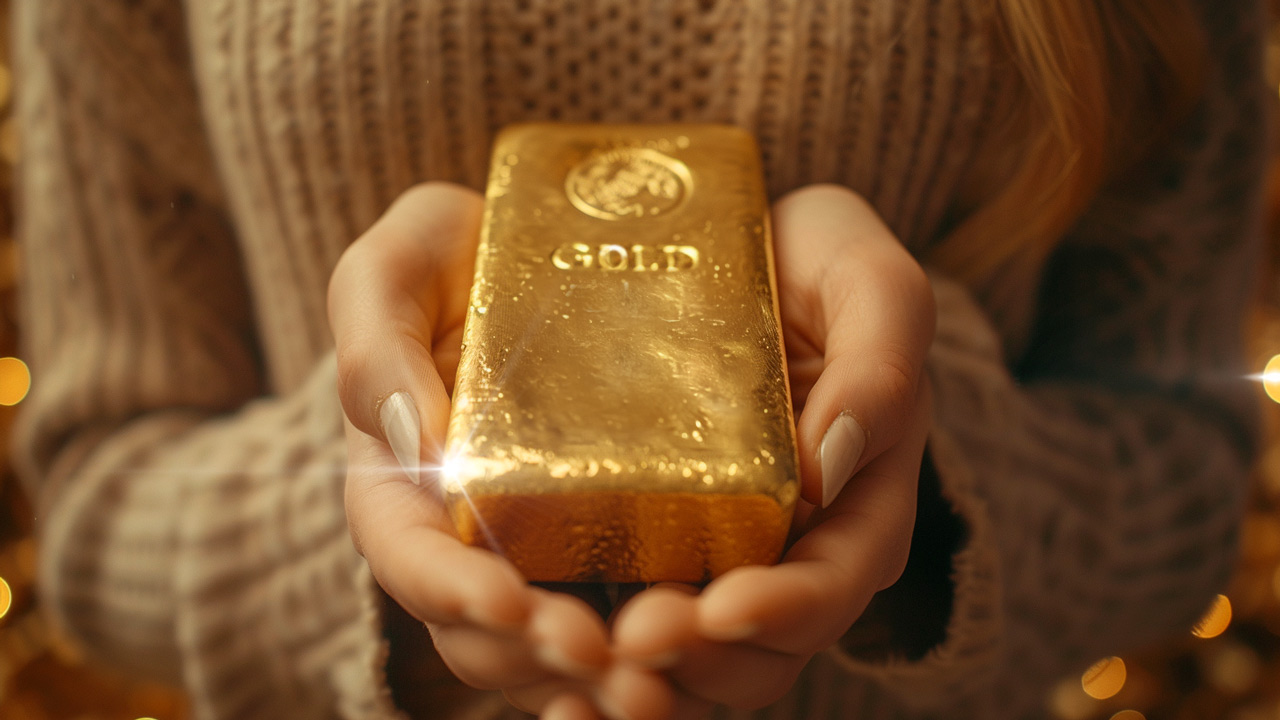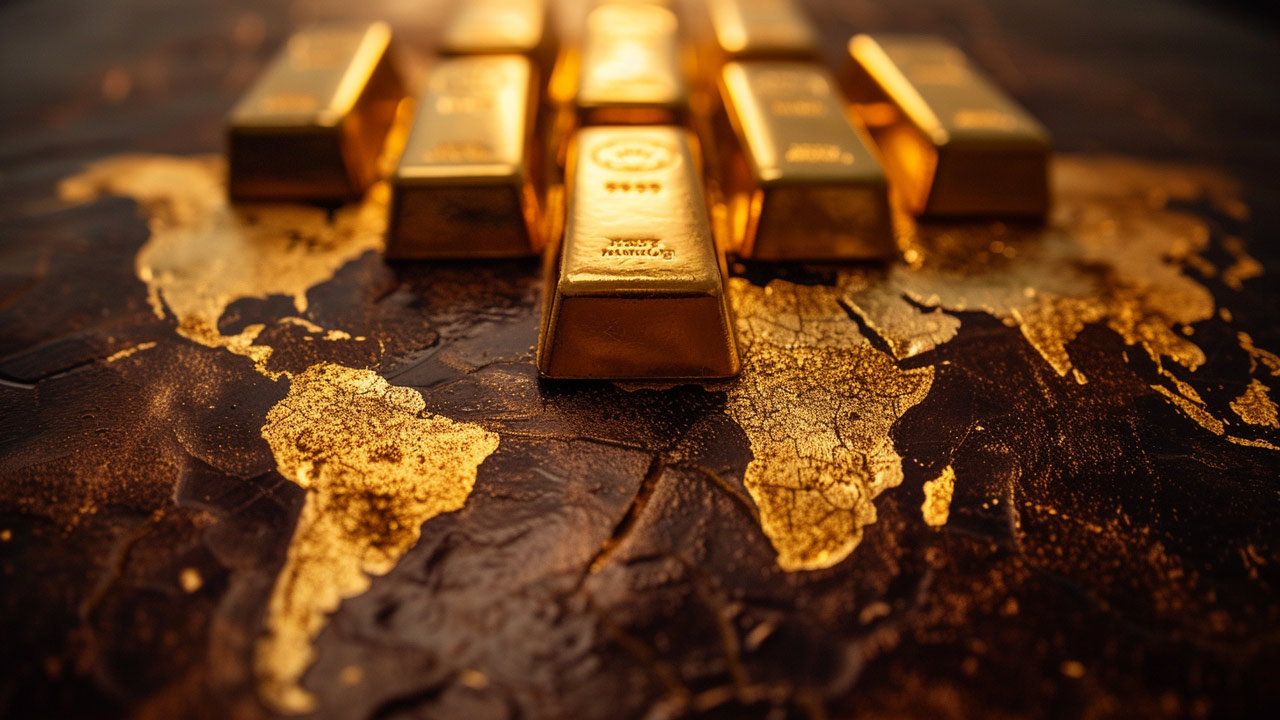Central Banks Added 46 Tons of Gold to Reserves in March
Central banks globally added another net 46.1 tons of gold to their reserves in March with the usual suspects making big purchases, according to the latest data released by the World Gold Council.
The pace of central bank purchases seems to be increasing, although a few banks are doing the bulk of the buying. Globally, central banks upped purchases in March by about 10 tons over February’s total, which was 33% higher than January’s buying.
On the year, central banks have added a net 110.6 tons of gold to their reserves. This is off the near-record pace of purchases last year.
Central bank demand came in at 650.3 tons in 2019. That was the second-highest level of annual purchases for 50 years, just slightly below the 2018 net purchases of 656.2 tons. According to the WGC, 2018 marked the highest level of annual net central bank gold purchases since the suspension of dollar convertibility into gold in 1971, and the second-highest annual total on record.
The World Gold Council bases its data on information submitted to the International Monetary Fund.
Turkey continued to be the biggest gold-buyer, adding another 31.7 tons of gold to its hoard in March. The Turkish lira is near all-time lows and the Turkish central bank is frantically trying to backstop its currency. Meanwhile, Turkey is selling dollars. According to Bloomberg, state banks sold roughly $1.1 billion of foreign currency in just two days this week.
Russia further increased its stockpile of yellow metal in March, adding another 9 tons to its reserves.
In March, the Central Bank of Russia announced it planned to suspend gold-purchases for the time being, effective April 1. But it remains unclear if that will actually happen. In the first week of April, Russian banks were already asking the central bank to restart gold purchases. They expressed concern over gold exports amid disruptions in the transportation industry due to the coronavirus pandemic. National Finance Association head Vasily Zablotsky told Reuters that banks are “facing problems” exporting gold as there are also fewer cargo flights and transportation costs have doubled.
Russia has been one of the biggest buyers of gold over the last several years and it’s paid off in a big way. The Russian Central Bank’s gold reserves topped $100 billion in September 2019 thanks to continued buying and surging prices.
The Russians have been buying gold for the last several years in an effort to diversify away from the US dollar. Russian gold reserves increased 274.3 tons in 2018, marking the fourth consecutive year of plus-200 ton growth. Meanwhile, the Russians sold off nearly all of its US Treasury holdings. According to Bank of America analysts, the amount of US dollars in Russian reserves fell from 46% to 22% in 2018.
Uzbekistan came back to the table in March, purchasing 7.5 tons of gold. The central Asian nation was a seller over the previous three months.
The two other gold buyers in March were Mexico and Malta and 0.1 tons each.
Germany was the only significant seller. The Bundesbank divested itself of 2.3 tons of gold and increased its reserve of euros “to cushion the blow from the virus outbreak.”
For the sixth straight month, the People’s Bank of China did not report any gold purchases. It’s not uncommon for China to go silent and then suddenly announce a large increase in reserves.
Many analysts believe China holds far more gold than it officially reveals. As Jim Rickards pointed out on Mises Daily back in 2015, many people speculate that China keeps several thousand tons of gold “off the books” in a separate entity called the State Administration for Foreign Exchange (SAFE). Given the political dynamics and the ongoing trade war, it seems unlikely the Chinese suddenly stopped increasing their gold reserves in 2016.
The WGC said it expects central banks to remain net-buyers of gold in 2020, but likely at a slower pace than the record levels we’ve seen over the past two years.
“We often get asked if central bank demand will be sustained. The past two months clearly suggest gold continues to be an important component of foreign reserves despite heightened levels of demand in recent years. But like everyone else, the recent market instability and uncertainty will be at the forefront of central bankers’ mind.”
Of course, it is difficult to tell how the economic impacts of the coronavirus pandemic will impact things down the road. It is possible that a rapid devaluation of the dollar due to Federal Reserve quantitative easing could drive central banks to dump dollars in exchange for gold, much like Turkey’s gold-buying spree.
Earlier this year, World Gold Council director of market intelligence Alistair Hewitt said there are two major factors driving central banks to buy gold – geopolitical instability and extraordinarily loose monetary policy.
Central banks are looking toward gold to balance some of that risk. We’ve also got negative rates and yields for a large number of sovereign bonds.”
Central bank policy has become significantly looser since Hewitt made that observation.





 Since Nayib Bukele became president of El Salvador, El Salvador has been in American media and global political discussion more than ever. While much of the attention focuses on Bukele’s mass incarceration of gang members and a decline in homicide of over 70%, Bukele has also drawn attention to his favoritism towards Bitcoin and how he […]
Since Nayib Bukele became president of El Salvador, El Salvador has been in American media and global political discussion more than ever. While much of the attention focuses on Bukele’s mass incarceration of gang members and a decline in homicide of over 70%, Bukele has also drawn attention to his favoritism towards Bitcoin and how he […] With gold hitting yet another awe-inspiring all-time high in the wake of Powell’s remarks reassuring markets (more or less) to expect rate cuts in 2024, a few analysts are pointing out risk factors for a correction — so is there really still room to run?
With gold hitting yet another awe-inspiring all-time high in the wake of Powell’s remarks reassuring markets (more or less) to expect rate cuts in 2024, a few analysts are pointing out risk factors for a correction — so is there really still room to run? Gold hit a new all-time nominal high, surpassing the previous record set in December of the previous year. The precious metal’s price reached approximately $2,140, indicating a robust and continuing interest in gold as a safe-haven asset, despite a rather peculiar lack of fanfare from the media and retail investors. This latest peak in gold […]
Gold hit a new all-time nominal high, surpassing the previous record set in December of the previous year. The precious metal’s price reached approximately $2,140, indicating a robust and continuing interest in gold as a safe-haven asset, despite a rather peculiar lack of fanfare from the media and retail investors. This latest peak in gold […] The gold price has been surging, with unprecedented central bank demand gobbling up supply. It has been a force to behold — especially as US monetary policy has been relatively tight since 2022, and 10-year Treasury yields have rocketed up, which generally puts firm downward pressure on gold against USD.
The gold price has been surging, with unprecedented central bank demand gobbling up supply. It has been a force to behold — especially as US monetary policy has been relatively tight since 2022, and 10-year Treasury yields have rocketed up, which generally puts firm downward pressure on gold against USD.  Total gold demand hit an all-time high in 2023, according to a recent report released by the World Gold Council. Last week, the World Gold Council (WGC) released its Gold Demand Trends report, which tracks developments in the demand for and use of gold around the world. Excluding over-the-counter (OTC) trade, 2023 gold demand fell slightly from 2022 […]
Total gold demand hit an all-time high in 2023, according to a recent report released by the World Gold Council. Last week, the World Gold Council (WGC) released its Gold Demand Trends report, which tracks developments in the demand for and use of gold around the world. Excluding over-the-counter (OTC) trade, 2023 gold demand fell slightly from 2022 […]